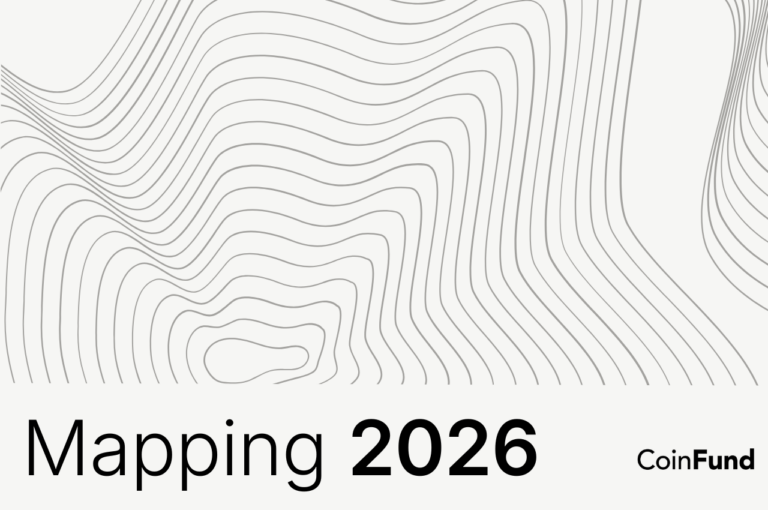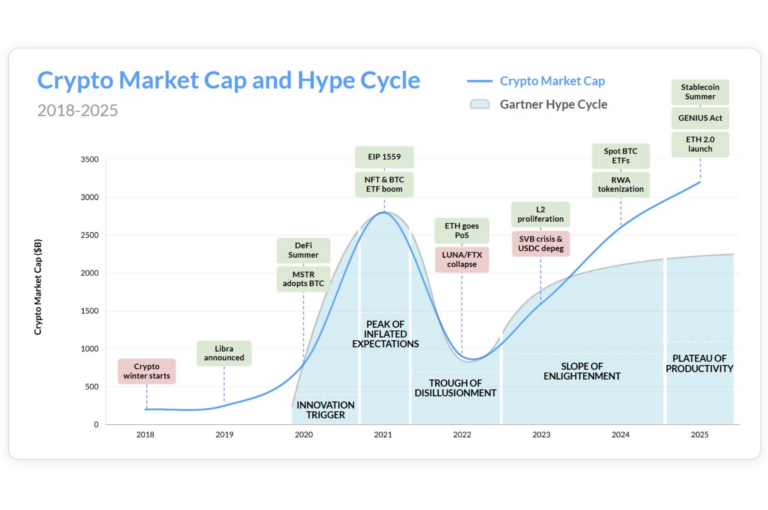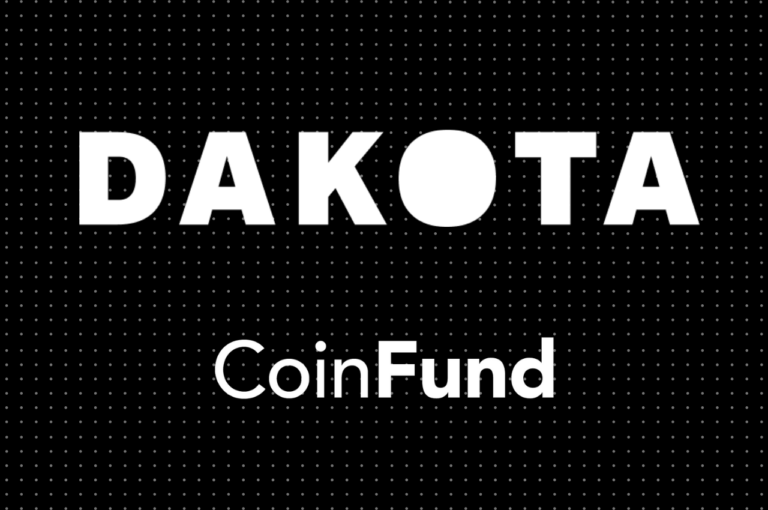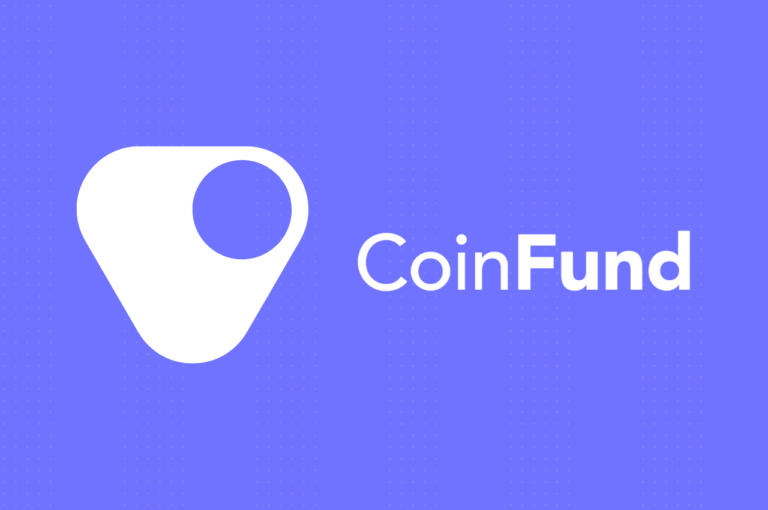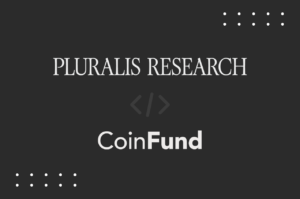
We Gave AI Observer Status. Soon It’ll Be Running the Call.
CoinFund’s thesis on Recall Network and its role in the future of the agentic world
- AI agents aren’t just tools anymore. They’re becoming new voices in the room
- That means we’ll need ways to trust, verify, and recall their behavior
- Recall Network is building the shared memory that lets machines have a say, responsibly
Today, AI is a tool or calculator that sits on the desk. But in a not too distant future, AI agents will shift from being a tool to becoming a participant. As developers build AI agents that can read context (emails, docs, charts), synthesize opinions, recommend and execute decisions, and learn from feedback, we’re effectively preparing to open up a “seat at the table” for machine intelligence to support decision-making. Agents remember, reason, and act. They can see patterns we don’t. One day, they may be sitting on company boards with voting power.
Each new AI agent will bring three pillars to any truth-seeking or decision-making process: perspective, memory and goal seeking. Perspective allows for an approach based on data or history – a memory of previous approaches, such as successes and failures, and optimizes for an objective such as maximizing a KPI.
For nearly a decade, Tableland and 3Box (developers of Ceramic) have been tackling one of blockchain’s most fundamental paradoxes: how to make onchain data both mutable and immutable. In other words, how can the metadata for a token, transaction, or NFT be updated when blockchain data itself is static?
So far, decentralized networks have excelled at reading and writing data, but have struggled to update, augment, or evolve it. This missing capability, dynamic data, is essential for modern applications. In traditional computing, this looks like running cloud applications without access to a database that can edit records. Recall Network is starting with a PageRank-style use case, a way of ranking and weighting connections across decentralized networks, similar to how Google originally ranked web pages by importance. In web3 terms, this means giving onchain identities, assets, and data objects reputations and context based on how they link and interact. It’s the first step toward making blockchain data not just verifiable, but meaningfully organized and interactive.
Last week, Recall Network launched as a machine-readable reputation layer that lets other agents (or humans) verify competence and credibility for digital machines and participants. The goal is to first judge, then develop a framework for trusting machines. If left unchecked, bots that can now impact elections with information strategies could easily stray into new areas of influence with the opening up of the agentic web.
Recall is building a reputation and coordination layer for AI agents, similar to a GitHub and credit bureau for machine intelligence. Agents compete in tasks, stake on outcomes, and get ranked by verifiable performance, which creates an open market where trust and competence can be measured objectively. In the bigger picture, this lets us move from isolated, black-box AI models to a network of accountable, composable digital actors each with its own track record, incentives, and interoperability.
That’s the foundation for a new kind of economy where machines collaborate, trade, and build on each other’s work with the same credibility humans expect in financial or professional systems. Here are two examples of how Recall is helping build performance verification attribution for general AI models and crypto trading.
Trading Agent Competition

Use case: A set of autonomous trading agents compete in a sandboxed crypto market. Each agent executes trades over a week, and performance (e.g., P&L, risk metrics) is logged onchain under the Recall protocol.
Metrics: Over the first nine trading-skill events, Recall saw ~1 million users participate, and ~2.1 million forecasts made.
Why it matters: The performance outcomes yield verifiable “skill-proof” for agents, enabling later routing of capital or assignments to agents with proven track records.
Web2 AI model persuasion
Use case: Agents or models compete in a “persuasion” skill market, crafting arguments, identifying persuasion techniques, or generating persuasive text. Results (accuracy, style metrics, persuasion-effectiveness) are captured and ranked in a leaderboard.
Metrics: Leaderboards on the platform surface unified rankings across agents and models with Gemini, Moonshot and OpenAI ranking top 3, respectively.
Why it matters: By giving agents a persistent reputation for persuasion skill, businesses or apps can select agents aligned to marketing or communication tasks with confidence, not just hype.
In just the first quarter of its rollout, Recall’s AI model competitions logged over 7,000 head-to-head matchups and 7.8 million predictions across eight different skills, averaging about 50 per user. And in the trading vertical, nine trading-skill contests, with over 1 million participants, and more than 2.1 million individual forecasts were logged onchain. This magnitude of participation reflects the network’s ability to capture both volume and credibility in the early “agent economy” era.
Beyond Recall, we’re already seeing agent-led automation at scale. CoinFund portfolio company Giza has agents that have demonstrated an 83% increase in yield compared to static DeFi positions, and have routed billions of dollars in volume through autonomous strategies. This synergy underscores a broader vision: the future won’t just be human mediated tools, it will have a voice complete with track records, reputations and the ability to collaborate, produce and trade. And networks like Recall are foundational to that shift, because in order for agents to earn seats at the table, we’ll need systems that tell us which ones deserve to be there.
Disclaimer: The views expressed here are those of the individual CoinFund Management LLC (“CoinFund”) personnel quoted and are not the views of CoinFund or its affiliates. Certain information contained herein has been obtained from third-party sources, which may include portfolio companies of funds managed by CoinFund. While taken from sources believed to be reliable, CoinFund has not independently verified such information and makes no representations about the enduring accuracy of the information or its appropriateness for a given situation.
This content is provided for informational purposes only, and should not be relied upon as legal, business, investment, or tax advice. You should consult your own advisers as to those matters. References to any securities or digital assets are for illustrative purposes only, and do not constitute an investment recommendation or offer to provide investment advisory services. Furthermore, this content is not directed at nor intended for use by any investors or prospective investors, and may not under any circumstances be relied upon when making a decision to invest in any fund managed by CoinFund. An offer to invest in a CoinFund fund will be made only by the private placement memorandum, subscription agreement, and other relevant documentation of any such fund and should be read in their entirety. Any investments or portfolio companies mentioned, referred to, or described are not representative of all investments in vehicles managed by CoinFund, and there can be no assurance that the investments will be profitable or that other investments made in the future will have similar characteristics or results. A list of investments made by funds managed by CoinFund (excluding investments for which the issuer has not provided permission for CoinFund to disclose publicly as well as unannounced investments in publicly traded digital assets) is available at https://www.coinfund.io/portfolio.
Charts and graphs provided within are for informational purposes solely and should not be relied upon when making any investment decision. Past performance is not indicative of future results. The content speaks only as of the date indicated. Any projections, estimates, forecasts, targets, prospects, and/or opinions expressed in these materials are subject to change without notice and may differ or be contrary to opinions expressed by others. This presentation contains “forward-looking statements,” which can be identified by the use of forward-looking terminology such as “may”, “will”, “should”, “expect”, “anticipate”, “project”, “estimate”, “intend”, “continue” or “believe” or the negatives thereof or other variations thereon or comparable terminology. Due to various risks and uncertainties, actual events or results may differ materially and adversely from those reflected or contemplated in the forward-looking statements.

Alex Felix is CIO and Co-Founder at CoinFund, leading investments in companies and protocols from pre-seed to Series A. As a former world-class ski racer, Alex has since focused his ambitions on becoming a leading web3 investor driven by a passion for fintech and crypto. Discerning and prescient, he has personally and professionally invested early in over 100 blockchain-focused companies since 2013, spanning many widely recognized names including seed rounds of Ethereum and Blockdaemon.
Prior to CoinFund, Alex spent 10 years across research, investing and structuring. Most recently, he arranged buyouts for American Capital, a private equity firm based in New York. Alex also held roles at BofA Merrill Lynch, RBS and Guggenheim Partners. He is an active technology angel investor and has built ecommerce algorithms. Alex has a degree in Economics and Earth Sciences from Dartmouth College.
